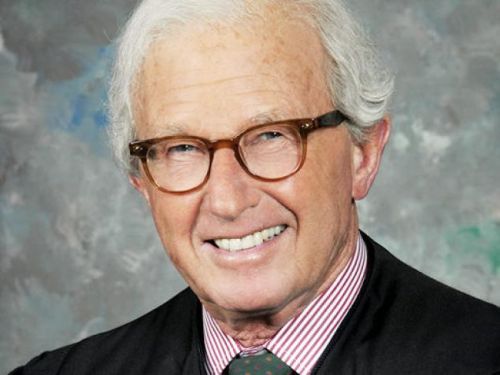
Marriage judge a newsmaker
July 3, 2014Budget has $134M gap as fiscal year nears its end
July 3, 2014One year after being publicly cautioned by its accreditation agency, Nicholls State University has filled holes in its interim report and is now in good standing with the agency’s board of trustees.
Nicholls last June was placed on warning, which is the lesser of two public sanctions deployed by the Southern Association of Colleges and Schools Commission on Colleges, after accreditors said the university did not provide enough evidence to both show it employs an adequate number of faculty and it properly studies student achievement to improve educational programming.
At no point did SACS make recommendations to the university or revoke its accreditation.
“I am pleased to report that we have received the best possible result from the commission’s deliberation — removal from ‘warning’ without an additional report,” Nicholls President Bruce Murphy said in a news release. “Now that this challenge is behind us, we can focus our energies on reaffirmation of our accreditation and our Quality Enhancement Plan to improve student learning.”
At the same meeting, SACS’ board of trustees reaffirmed Fletcher Technical Community College’s accreditation; the Houma school had not been sanctioned.
Also last month, Pineville-based Louisiana College was placed on probation, the harsher of SACS’ two public sanctions. Louisiana College is the only school in the state to have a SACS sanction.
Accreditation, which verifies accordance with institutional and educational requirements and standards as determined by an independent, nongovernmental inspector, is vital to postsecondary institutions. It is necessary for students to qualify for federal aid and most private scholarships, guides the transfer of credit hours and gives credence to degrees.
Nicholls has been accredited through SACS, the recognized accrediting agency in 11 southern states, since 1964. The Thibodaux university is accredited to award associate, baccalaureate, master and specialist degrees. Various departments within the school are accredited by subject-specific agencies.
Nicholls’ sanction stemmed from its five-year report, which was a response to a boilerplate list of 17 criteria that the university submitted in March 2012. Four months later, SACS sent Nicholls a letter requesting additional information on three of the 17 standards: faculty levels, institutional effectiveness and program length.
Nicholls responded to the request in April 2013, but SACS determined the responses regarding faculty levels and institutional effectiveness were unsatisfactory. Nicholls was placed on warning in June 2013 and was given one year to remedy what university officials classified as clerical issues.
Regarding faculty levels, the issues revolved around whether faculty members had adequate control over the curriculum they teach, said Renee Hicks, the university’s liaison with SACS.
“They never questioned that we had enough faculty,” Hicks said. “It was more reporting that the control of your program was in the hands of qualified faculty … basically, that the experts are delivering and it’s not being dictated from above.”
Nicholls did not make any changes to their policies, just the way they were referenced in the report, Hicks said.
“It was just a matter of pulling citations from our policies and procedures that were already in place and explaining committee structures and the process on this campus as to how courses get added or deleted and to show that, indeed, our faculty are in control,” Hicks said.
Some of the documents cited included minutes from faculty committee meetings, to show the meetings were being held and what was discussed.
Technically, institutional effectiveness is a standard and not a requirement, so that flag was not why Nicholls was warned, Hicks said. Nonetheless, program deans and department heads from throughout the campus worked until March revamping the way the university documents learning outcomes, the subtopic SACS took issue with.
“We ended up getting all of our programs into a new system, to where everybody’s reports would look alike,” Hicks said. “A lot of our programs were reporting a little differently. It was a matter of having a portfolio for each (program) with the same cover page, with the same kind of information. It just made it, in my opinion, easier for a reviewer.”
The agency has long required member institutions to file 10-year reports to retain accreditation, but the five-year, interim reports are fairly new; the one Nicholls filed in 2012 was the university’s first. These reports require evidence that accrediting principles and federal mandates are being satisfied.
The university’s 10-year report is due to SACS in September 2015. Ultimately, the revamp of how Nicholls documents its activity should be beneficial as it compiles a much more thorough – 94 criteria – report. The university has already appointed a committee comprised of people across campus and begun shaping the report.
“Since we know the format we’ve adopted is working, we are promoting that into the other areas that we need to report,” Hicks said.









